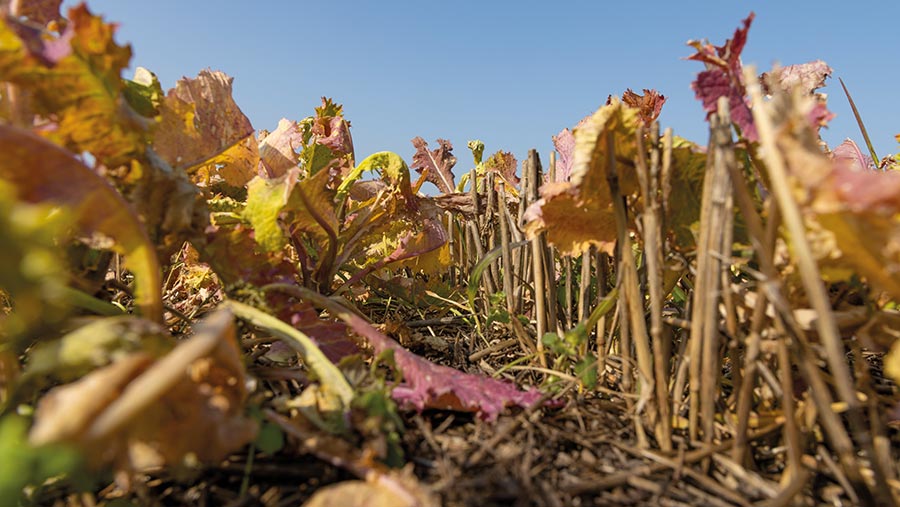A regenerative farmer’s reservations on carbon trading
 © Gary Naylor
© Gary Naylor Carbon trading has become a hot topic, as farm payments transition across to rewarding farm businesses for investing in natural capital on their land.
However, many farmers disagree on whether the practice of selling carbon certificates is a positive step.
Jimmy Goodley, a North Norfolk farmer, is one of the sceptics. He began moving over to regenerative agricultural principles six years ago, but has yet to join a carbon trading scheme.
See also: Largest UK weed survey reveals Italian ryegrass challenge
“What has prohibited me from selling my carbon are three key points,” he says.
Greenwashing
First, he is unclear what the point of carbon trading is.
“Part of the reason we went down the regen route was to combat climate change, and if you look at the original cap and trade clauses done under [former president George] Bush Sr in the USA, there was a lot of carrot and stick.
“It seems to me that carbon offsets are a lot of carrot and not a lot of stick. You’re relying on corporations to do the right thing, and it does facilitate a certain amount of greenwashing.
“I hope when my carbon is being sold it is genuinely offsetting somebody else’s necessary carbon emissions.”
Commodity values
Mr Goodley’s next concern is about selling too cheaply at the very start of a market.
“At the moment carbon feels a little cheap. Once you’ve been regeneratively and zero-till farming, carbon becomes an important asset. I’m desperately keen not to sell that undervalued.”
With many commodities, it wasn’t the person who produced it that made the money, but the people trading it, he points out.
Measuring carbon
His final reservation relates to measurement, with questions around physical comparisons and modelled differences.
“There are schemes I’ve been offered where effectively, if I tick all the right boxes, I can get a five-year deal on my carbon.
“Any farmer that has oversold wheat and ends up having contracts bought in against it knows the danger.
“My worry is that if I sell 500t of carbon that I think I have sequestered, and the technology for scanning moves on, and those who have bought it turn up and say you’ve only sequestered 400t, now you’re going to be offsetting 100t.
“Every time I’ve been bought against on a wheat contract, the wheat price ends up being significantly higher than what I’ve sold it for to start with.”
Terms for trading
Reuben Saxon, chief executive and co-founder of Sward, a technology platform that helps farmers measure, develop and sell natural capital assets, notes that there are risks.
If the government or other private sector actors set the terms for trading natural capital assets, and if platforms are not built to allow farmers to take control of their assets, then farmers’ interests are not protected.
“It is a huge opportunity for farmers, but also an imperative they take control of what is theirs,” he says.
He suggests that for that to happen, three things are important.
First, deal with companies that are doing real baselining and provide contracts that protect farmers from the types of issues raised by Mr Goodley.
Second, he suggests that government should not regulate too quickly, to allow initial innovation to happen.
“But then regulate and regulate well to exclude bad actors from the market – and I think there are bad actors currently.”
Finally, the private sector has to be honest to build trust in the market, he says. “If you’re an offset buyer, you have to be a good one.”
That means being accountable and using good processes to do carbon accounting; respecting farmers’ rights over natural capital assets and not asking farmers to cover the cost of a transition; and working with markets that will ultimately be government-regulated.
Farmer Jimmy Goodley and Reuben Saxon, chief executive and co-founder of Sward, were speaking at Groundswell 2022

